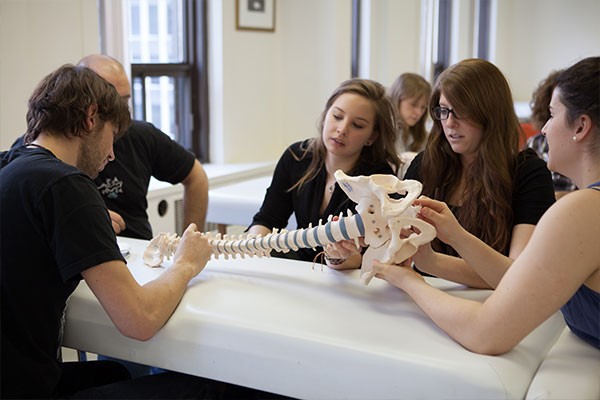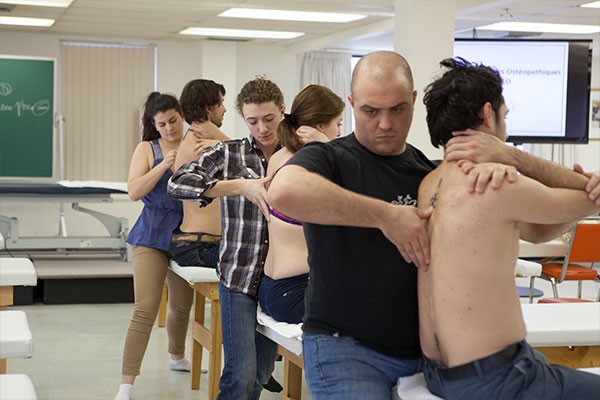Physiotherapy was Wendy Jardine's first profession, and though she still works in the field four days a week, she saw the opportunity to increase her accreditations by adding osteopathy to her practice through the Collège d'Études Osthéopathiques (CEO — Osteopathic Studies). One of the perks of the part-time Osteopathy Manual Practice Diploma at the CEO is that Jardine could enhance her own profession with osteopathy, instead of having to drop it for a new practice.
Healthcare practitioners study at the CEO to expand their existing skills and to see what they can add onto their practice to benefit their clients. Jardine came into the program with prior knowledge in biomechanics, anatomy and other overlapping information, but felt that the CEO's Traditional Osteopathy program expanded her treatment abilities. "The challenge for me was becoming as gentle as I could with my technique," Jardine says, adding that the emphasis with osteopathy is on using gentle techniques to effect and treat the body as a whole.
With osteopathy, there is an emphasis on the visceral system and the fascia that surrounds the organs. The fascia lines all of your structures: all of the organs, muscles, nerves and blood vessels. Jardine explains it like a t-shirt — the clothing that you wear should be moving with you. But if your t-shirt is tucked in one spot, it will pull and be too tight in another.
"It needs to be free-flowing, and that's what we as osteopaths work with. If you have arthritis, we can loosen and unload all the tissue tension around the joints." This is the same for sinus problems, knee pain or digestive issues – it can all be linked. Osteopaths identify these restrictions that affect function, both local and at a distance from the symptomatic area.
A lot of what an osteopathic practitioner does is about knowing how to examine the whole body, to look for the cause of the presenting symptoms, and observe the body's interrelationships with the symptoms. "It was something I enjoyed working on: understanding and feeling how gentle techniques have the ability to make a difference and improve mobility and pain," says Jardine. "It was exciting for me to be able to learn new and more effective techniques."
The program took five-years, plus the research study portion. But Jardine says it is well worth the time and commitment. After graduating in 2010, she remained heavily involved with the College as a clinical supervisor, and she recently accepted the position of principal of the Halifax campus.
The CEO osteopathic studies program is patient-centered. Osteopathic principles, along with a strong foundation of knowledge, methodology and guided practical sessions, promote optimal patient care. CEO osteopathic studies allows students upon graduation to meet the academic credentials required by the Nova Scotia Association of Osteopaths (NSAO). The NSAO is recognised by insurance companies, and its members receive billing privileges. Across the country there are numerous osteopathic part-time study programs. Students must do their homework when they are looking at programs to ensure the length of the program and standards meet their long-term goals.



